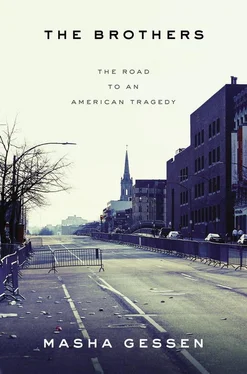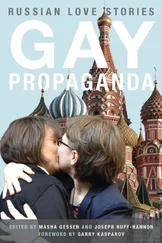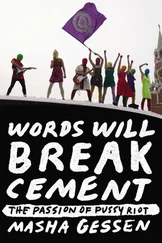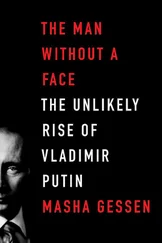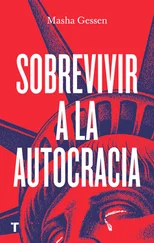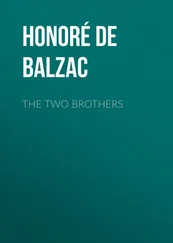In and about Kyrgyzstan: my research assistant in Tokmok, Alexandra Ryabova; University of Colorado Boulder doctoral students Caitlin Ryan and Austin Cowley; and especially their teacher Elizabeth Cullen Dunn, now a professor at Indiana University. Elizabeth’s expertise was invaluable, but her encouragement and understanding of this project were worth even more.
In and about Boston: Nick and Ruth Daniloff; Graham Fuller; ACLU Massachusetts staff attorneys Jessie Rossman and Sarah Wunsch and Privacy Rights Coordinator Kade Crockford, who has followed the Boston Marathon bombing case doggedly and seemed never to tire of explaining the intricacies to me. My Columbia MFA Writing Program intern Elina Mishuris systematized conspiracy theories and tracked down far-flung leads. Melissa Ludtke helped me with contacts and advice, as did Krystyna Colburn and Ellen Todres Gelfand, both of whom also gave me shelter. Svetlana Boym did what she does best, which was challenge everything I have to say and tell me to read Hannah Arendt. Julia Zagachin was the person who instructed me to drop everything and write this book.
Several journalists shared information with me generously: Alan Cullison of The Wall Street Journal , Simon Shuster of Time , Fatima Tlisova of the Voice of America, and the great Bruce Gellerman of WBUR.
I have been fortunate, at Riverhead, to work with the best team in all of publishing. I think that Becky Saletan might like me more than she likes deadlines, and I hope to God that never changes. My agent, Elyse Cheney, is the best advocate a writer could have.
Vera Shengelia tracked my every move when I was in Dagestan, and then handed this tedious task over to her husband, Ilya Venyavkin. In fact, they’ve had my back for years. And nothing I do would be possible without Darya Oreshkina, who gives me both my home and my freedom. She also made the maps for this book.
Anokhina, Svetlana, and Polina Sanayeva, eds. Byl takoy gorod: Makhachkala . Moscow: Epokha, 2013.
Atran, Scott. Talking to the Enemy: Faith, Brotherhood, and the (Un)Making of Terrorists . New York: HarperCollins, 2010.
Avtorkhanov, Abdurakhman. Imperiya Kremlya: Soevtskiy tip imperializma . Moscow: Polifakt–Druzhba narodov, 1991.
Avtorkhanov, Abdurakhman. Narodoubiystvo v SSSR: Ubiystvo chechenskogo naroda . Munich: Svobodny Kavkaz, 1952.
Baiev, Khassan, with Ruth and Nicholas Daniloff. Grief of My Heart: Memoirs of a Chechen Surgeon . New York: Walker & Company, 2005.
Blum, Gabriella, and Philip B. Heymann. Law, Outlaws, and Terrorists: Lessons from the War on Terrorism . Belfer Center Studies in International Security. Cambridge, MA: The MIT Press, 2010.
Crenshaw, Martha. “The Causes of Terrorism.” Comparative Politics 13, no. 4 (July 1981), pp. 379–399.
Helman, Scott, and Jenna Russell. Long Mile Home: Boston Under Attack, the City’s Courageous Recovery, and the Epic Hunt for Justice . New York: Dutton, 2014.
Heymann, Philip B. Terrorism, Freedom, and Security: Winning Without War . Belfer Center Studies in International Security. Cambridge, MA: The MIT Press, 2003.
Human Rights Watch and Human Rights Institute, Columbia Law School. Illusion of Justice: Human Rights Abuses in US Terrorism Prosecutions . New York: Human Rights Institute at Columbia Law School, 2014. http://www.hrw.org/sites/default/files/reports/usterrorism0714_ForUpload_0_0_0.pdf.
Malashenko, Aleksei. Islamskiye orientiry Severnogo Kavkaza . Moscow: Gendalf, 2001.
Ploskikh, V. M., and M. K. Imakeeva, eds. Deportirovanniye narody Kavkaza v Kyrgyzskuyu Respubliku: Sbornik dokumentov i materialov . Bishkek: KRSU, 2010.
Post, Jerrold M. The Mind of the Terrorist: The Psychology of Terrorism from the IRA to Al-Qaeda . New York: Palgrave Macmillan, 2007.
Richardson, Louise. What Terrorists Want: Understanding the Enemy, Containing the Threat . New York: Random House, 2006.
Smith, Sebastian. Allah’s Mountain: The Battle for Chechnya . London and New York: Tauris Parke Paperbacks, 2006.
Masha Gessenis a Russian-American journalist who is the author of several books, most recently the national bestseller The Man Without a Face: The Unlikely Rise of Vladimir Putin (Riverhead, 2012) and Words Will Break Cement: The Passion of Pussy Riot (Riverhead, 2014). Her work has appeared in the New Yorker , Vanity Fair , The New York Times , The New York Review of Books , Slate , and many other publications, and has received numerous awards, most recently the 2013 Media for Liberty Award. She has served as the editor of several publications and as director of Radio Liberty’s Russia Service. She lives in New York.
Dead Again: The Russian Intelligentsia After Communism
Ester and Ruzya: How My Grandmothers Survived Hitler’s War and Stalin’s Peace
Blood Matters: From Inherited Illness to Designer Babies, How the World and I Found Ourselves in the Future of the Gene
Perfect Rigor: A Genius and the Mathematical Breakthrough of the Century
The Man Without a Face: The Unlikely Rise of Vladimir Putin
Words Will Break Cement: The Passion of Pussy Riot
Gay Propaganda: Russian Love Stories (editor)
Praise for The Brothers :
“Remarkable… reminiscent of Lawrence Wright’s The Looming Tower … Rather than the story of two lone-wolf jihadists, determined to wage war on their adopted country, the marathon bombing becomes a saga of both the Tsarnaev family and contemporary U.S. culture, in which all too often terror provokes an unreasonable response… For Gessen, the issue is not guilt or innocence… more essential is what the Tsarnaevs and their story tells us about who we have become. That she makes the case with grace and passion, while also basing it on rigorous reporting, is the triumph of the book.”
—
Los Angeles Times
“Straightforward and captivating.”
— Janet Napolitano,
The New York Times Book Review
“Stunning piece of reporting. An instant classic.”
— Lev Grossman (via Twitter)
“A powerfully compelling portrait… Gessen is uniquely suited to tell the Tsarnaev story: She moved to Boston as a teenage Russian immigrant herself, and, as a result, her observations about what immigrants experience carry specific gravity… No book could ever fully explain why someone would choose to murder innocent people, but Gessen comes as close as we’ll ever get. Much as Truman Capote did in his classic “In Cold Blood,” Gessen offers compassion for those whose acts are most contemptible, and her explanation of what happened is as complex and as simple as it is to be human. And that is truly frightening.”
—
Chicago Tribune
“A Russian-speaking immigrant in Boston, journalist Masha Gessen might be uniquely qualified to investigate Boston Marathon bombers Tamerlan and Dzhokhar Tsarnaev. In The Brothers , she writes with sophistication and nuance about their family’s complicated, nomadic existence… an enthralling and illuminating read.”
—
Minneapolis Star Tribune , Fave of the Week
“This is a story that no one wanted to hear in the days and months after the bombing… Many Americans still may not care to hear it, but that would be too bad, because [ The Brothers ] is one of the best books I’ve ever read about terrorism and the immigrant experience in America… part social history, part travelog (she traversed the Caucasus and Central Asia while reporting it), and part forensic on family and cultural dysfunction… Gessen wanders among these people, and approaches them with empathy and dark wit… a student of state and stateless terror, [she] is excellent on the varieties of fear it engenders.”
Читать дальше
